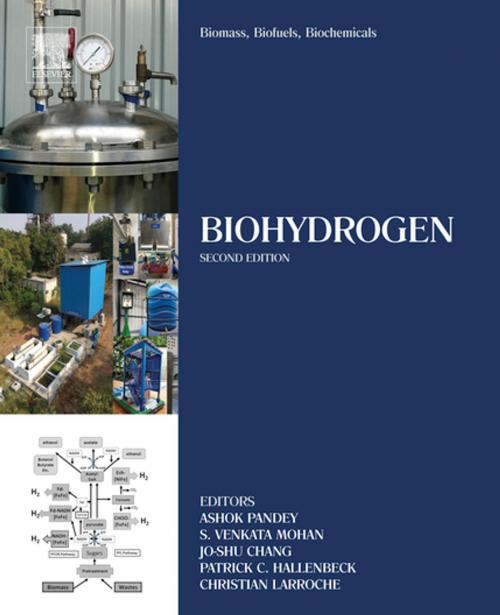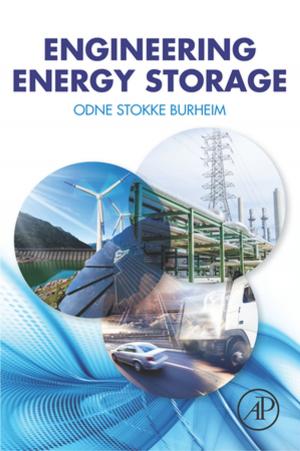Biomass, Biofuels, Biochemicals
Biohydrogen
Nonfiction, Science & Nature, Technology, Engineering, Chemical & Biochemical| Author: | ISBN: | 9780444642042 | |
| Publisher: | Elsevier Science | Publication: | January 12, 2019 |
| Imprint: | Elsevier | Language: | English |
| Author: | |
| ISBN: | 9780444642042 |
| Publisher: | Elsevier Science |
| Publication: | January 12, 2019 |
| Imprint: | Elsevier |
| Language: | English |
Biomass, Biofuels and Biochemical: Biohydrogen, Second Edition, provides general information, basic data and knowledge on one of the most promising renewable energy sources, including its production and applications. The book describes a green technology for abating environmental crisis and enabling the transformation into a sustainable future. Researchers, students and science enthusiasts alike will appreciate this holistic view of biohydrogen production, which details the functional mechanisms employed, operational configurations, influencing factors and integration strategies. With 50% more content, this new edition outlines the scaling of processes and features material from experienced international researchers working at the interface of biotechnology and engineering.
Hydrogen is an energy carrier and is available in chemically combined forms in water, fossil fuels and biomass. About 95 % of current hydrogen requirements are produced through fossil fuel sources. Being a clean energy source, its future widespread use as a fuel is likely to be in the transportation and distributed power generation sectors.
- Depicts a holistic view of biohydrogen in a unified approach making it a single point of reference
- Includes new technologies and perspectives giving up-to-date state-of-the-art information on research and commercialization
- Provides strategic integrations of acidogenesis with various bioprocesses essential in establishing a circular biorefinery
- Includes new research findings since the 1st edition appeared, with 50% more content
- Integrates various subjects including biotechnology, bioengineering, molecular biology, environmental science, etc.
- Reviews the various topics from a global perspective and an international list of contributors
Biomass, Biofuels and Biochemical: Biohydrogen, Second Edition, provides general information, basic data and knowledge on one of the most promising renewable energy sources, including its production and applications. The book describes a green technology for abating environmental crisis and enabling the transformation into a sustainable future. Researchers, students and science enthusiasts alike will appreciate this holistic view of biohydrogen production, which details the functional mechanisms employed, operational configurations, influencing factors and integration strategies. With 50% more content, this new edition outlines the scaling of processes and features material from experienced international researchers working at the interface of biotechnology and engineering.
Hydrogen is an energy carrier and is available in chemically combined forms in water, fossil fuels and biomass. About 95 % of current hydrogen requirements are produced through fossil fuel sources. Being a clean energy source, its future widespread use as a fuel is likely to be in the transportation and distributed power generation sectors.
- Depicts a holistic view of biohydrogen in a unified approach making it a single point of reference
- Includes new technologies and perspectives giving up-to-date state-of-the-art information on research and commercialization
- Provides strategic integrations of acidogenesis with various bioprocesses essential in establishing a circular biorefinery
- Includes new research findings since the 1st edition appeared, with 50% more content
- Integrates various subjects including biotechnology, bioengineering, molecular biology, environmental science, etc.
- Reviews the various topics from a global perspective and an international list of contributors















